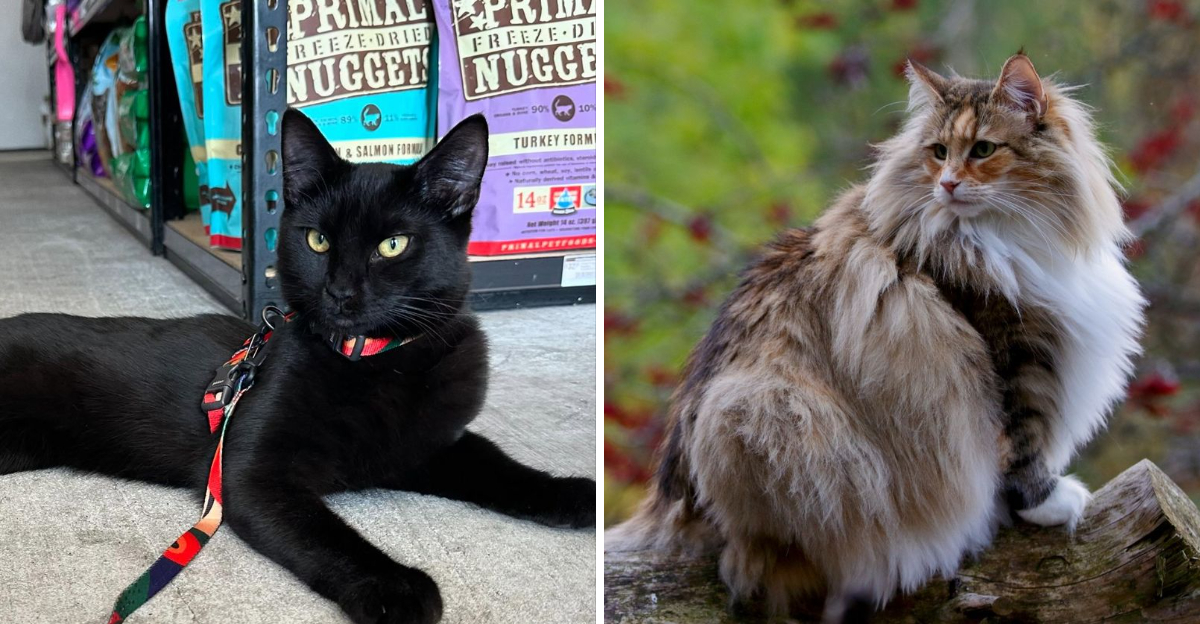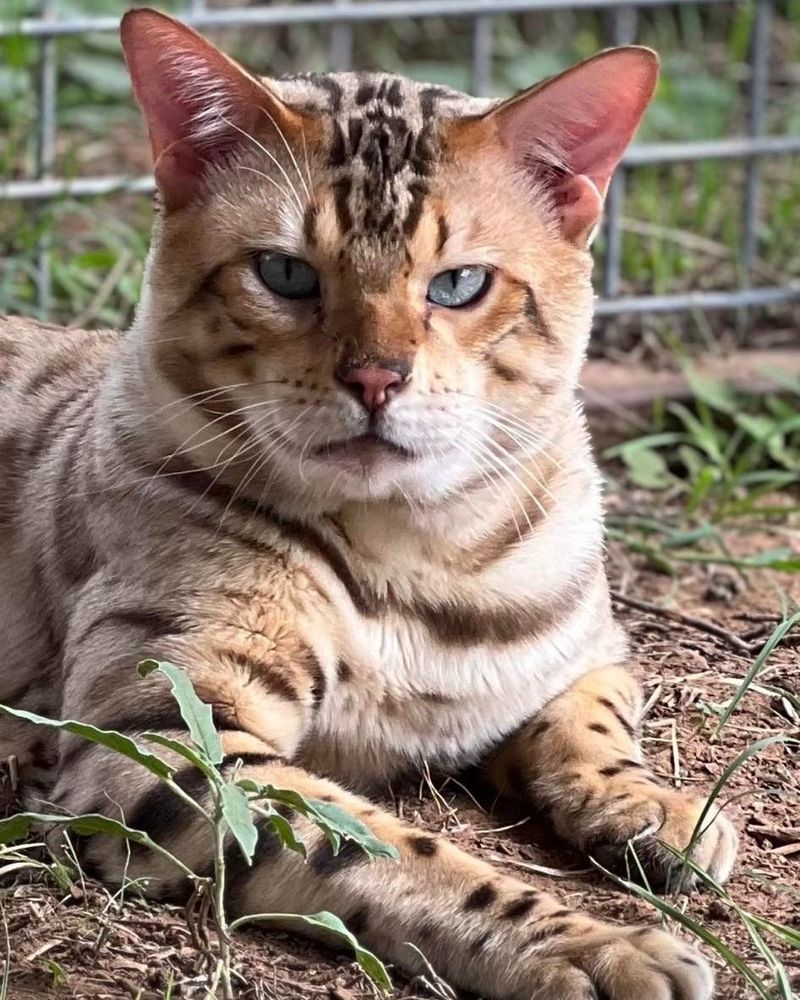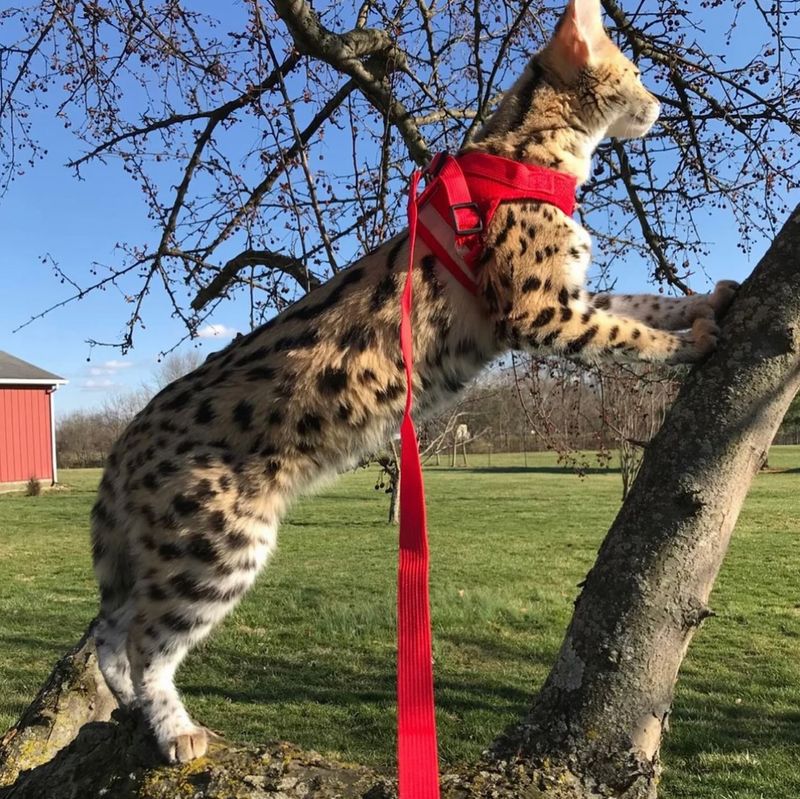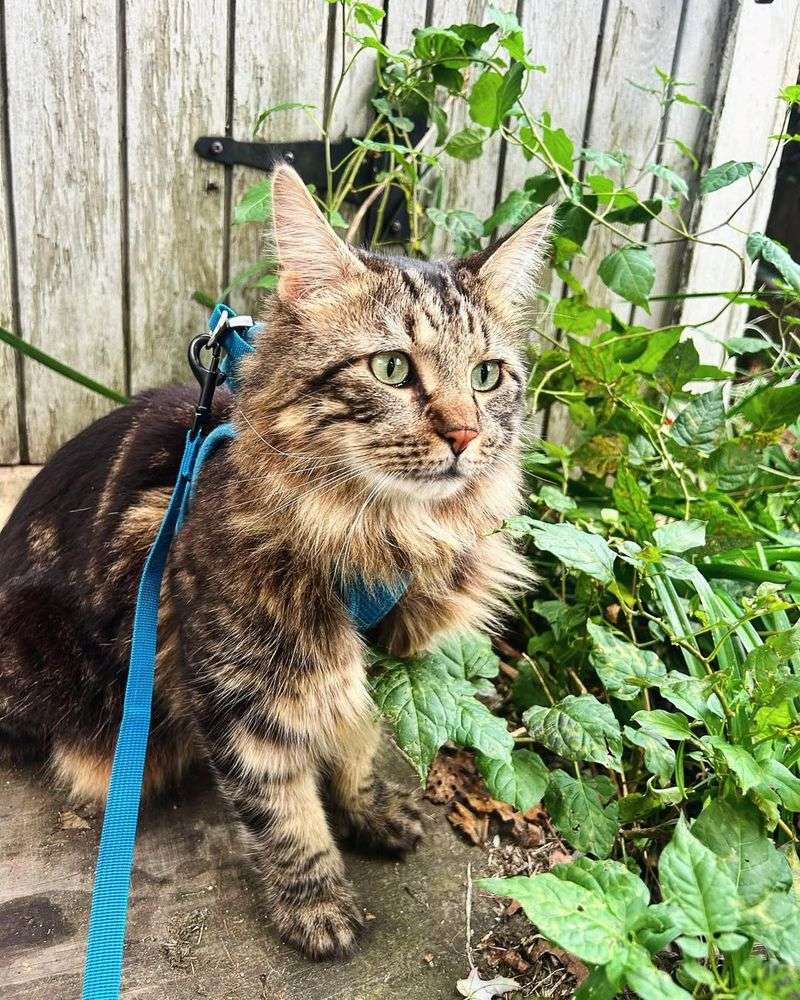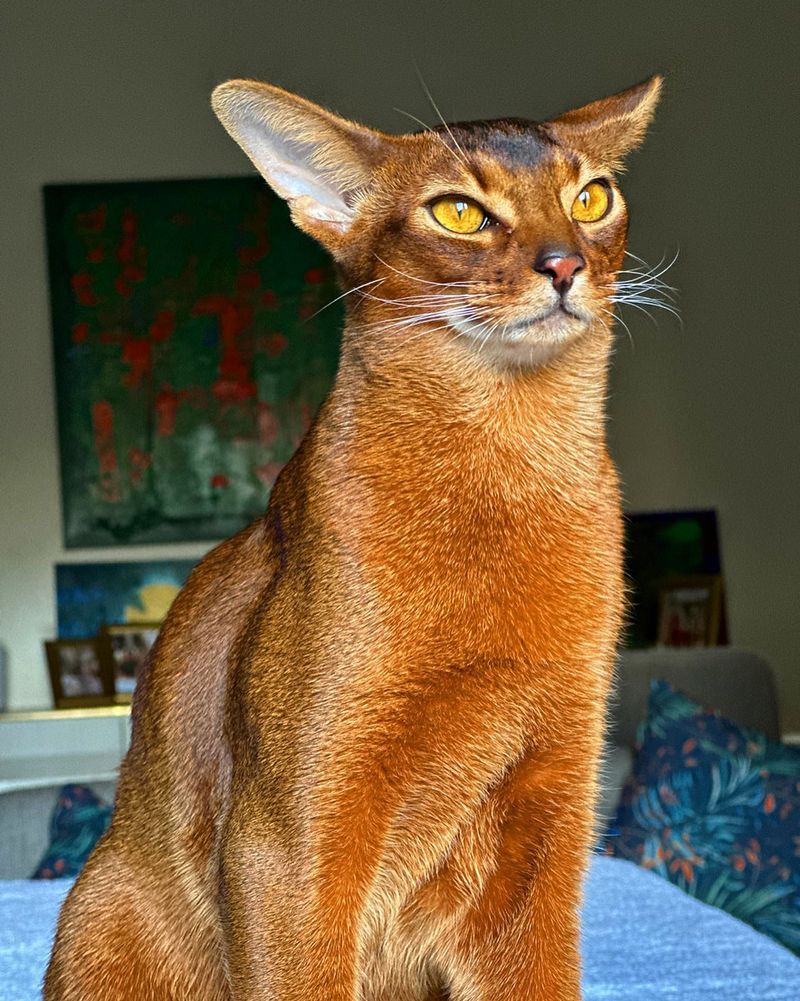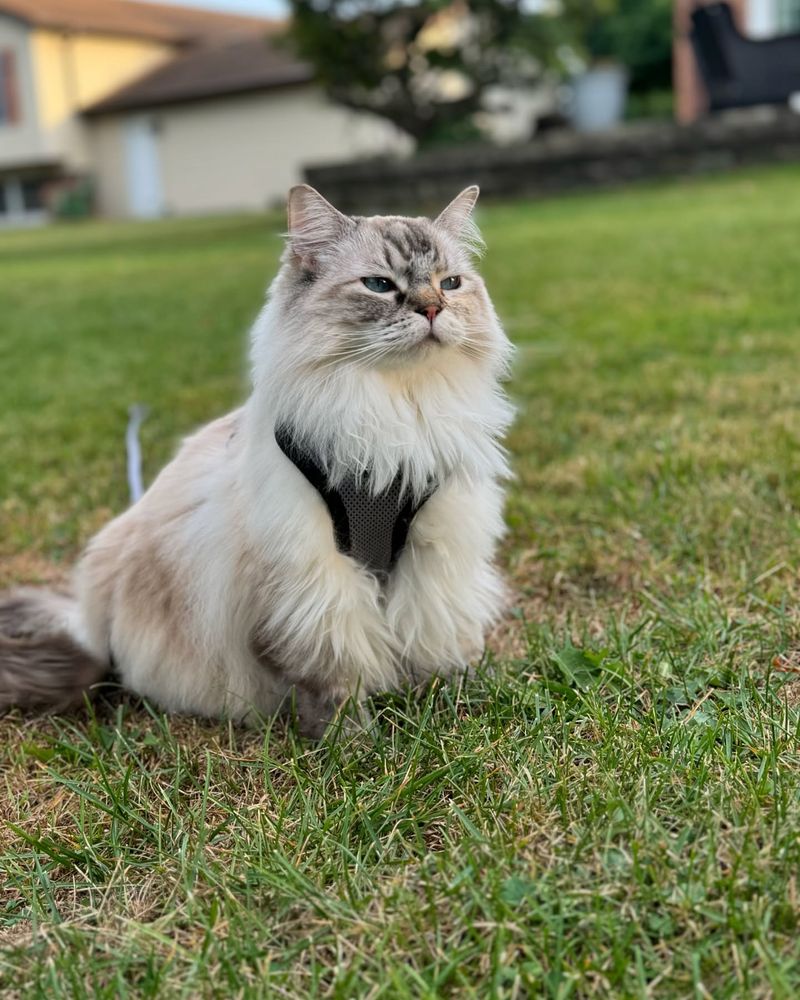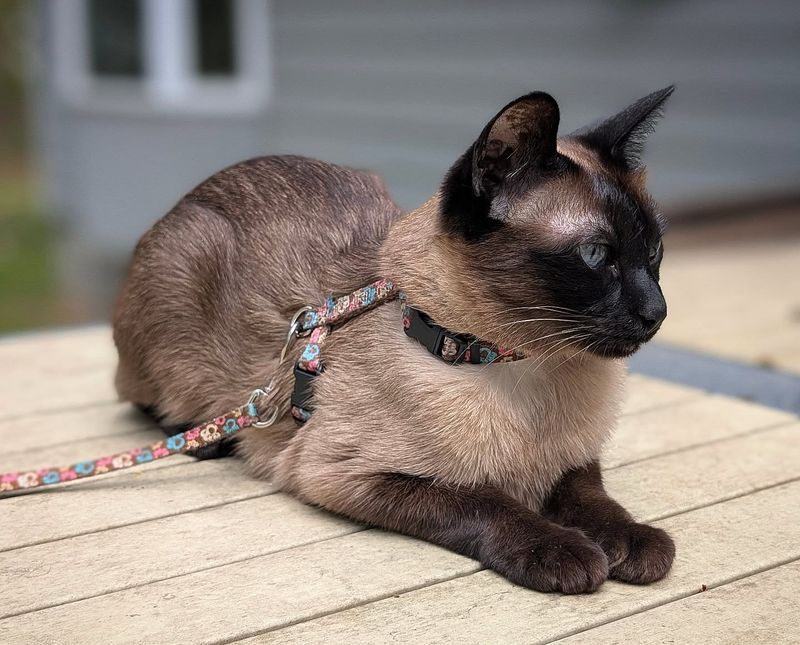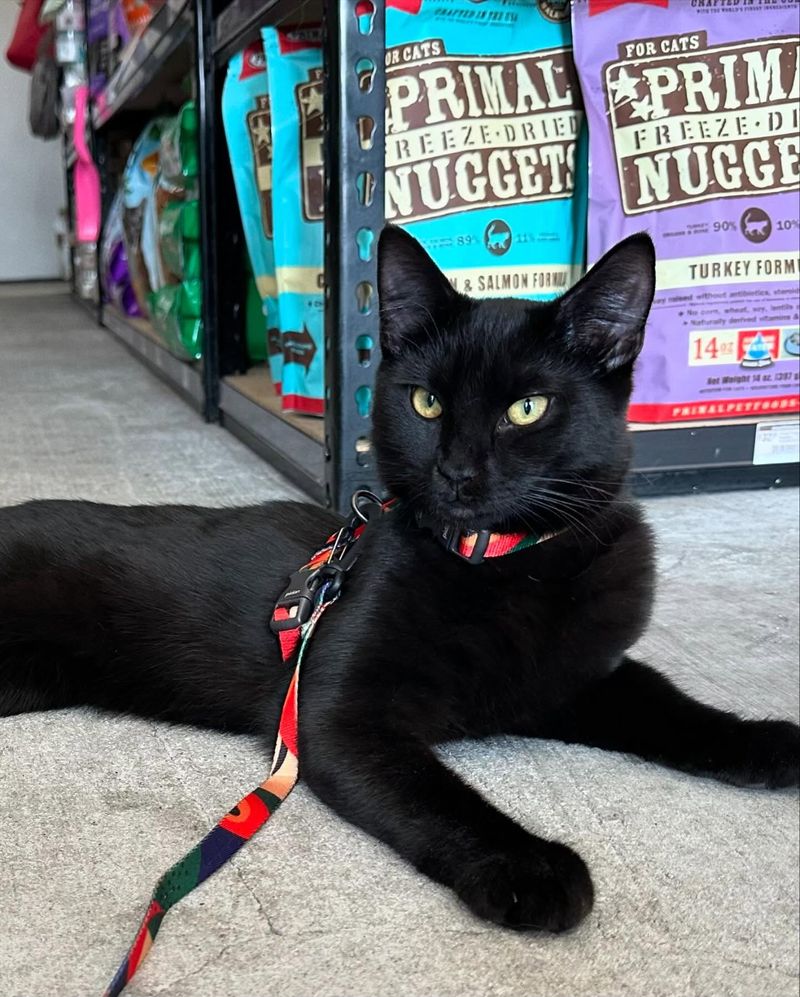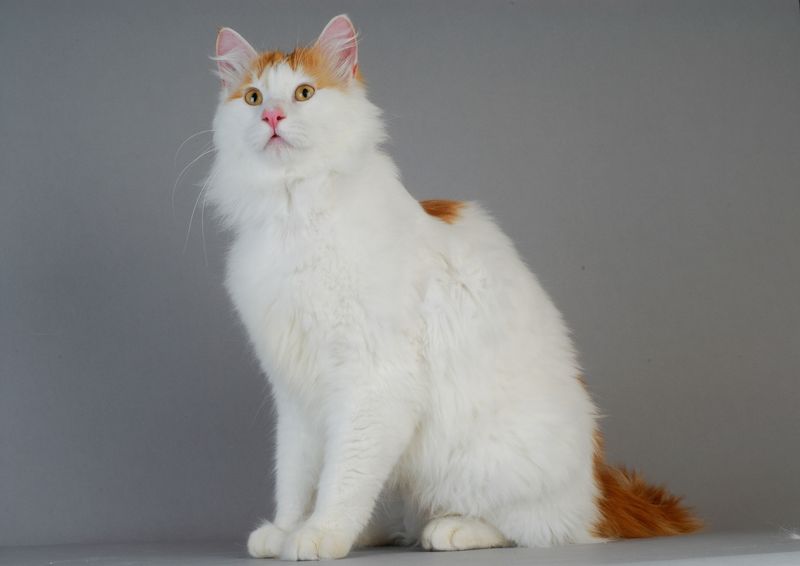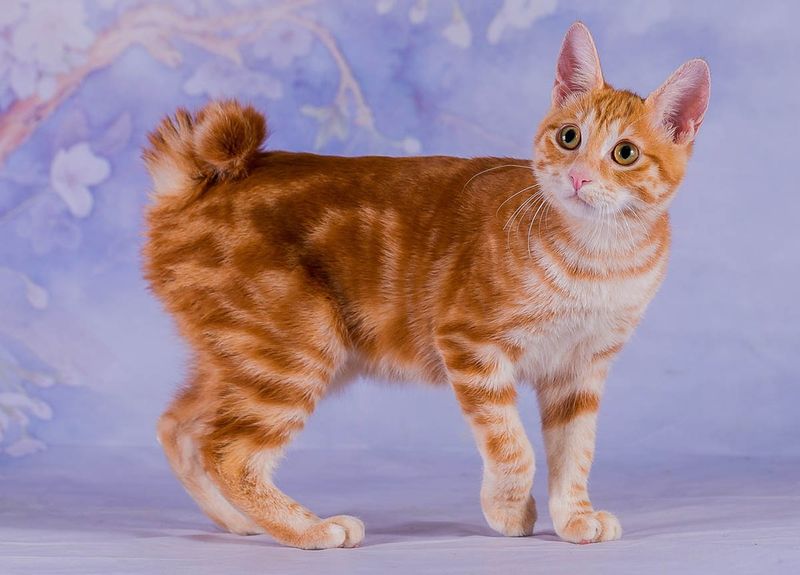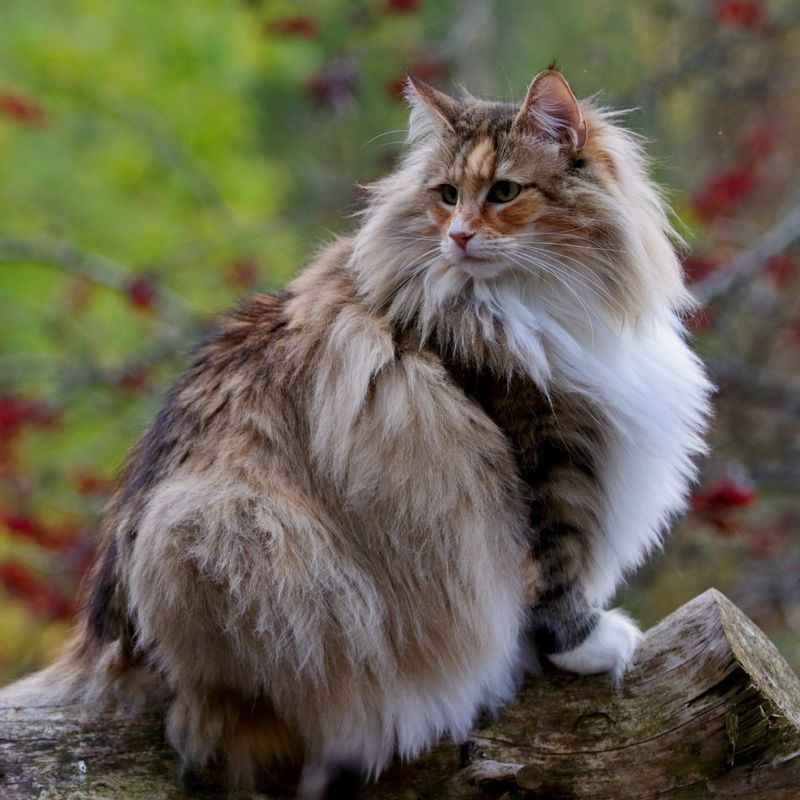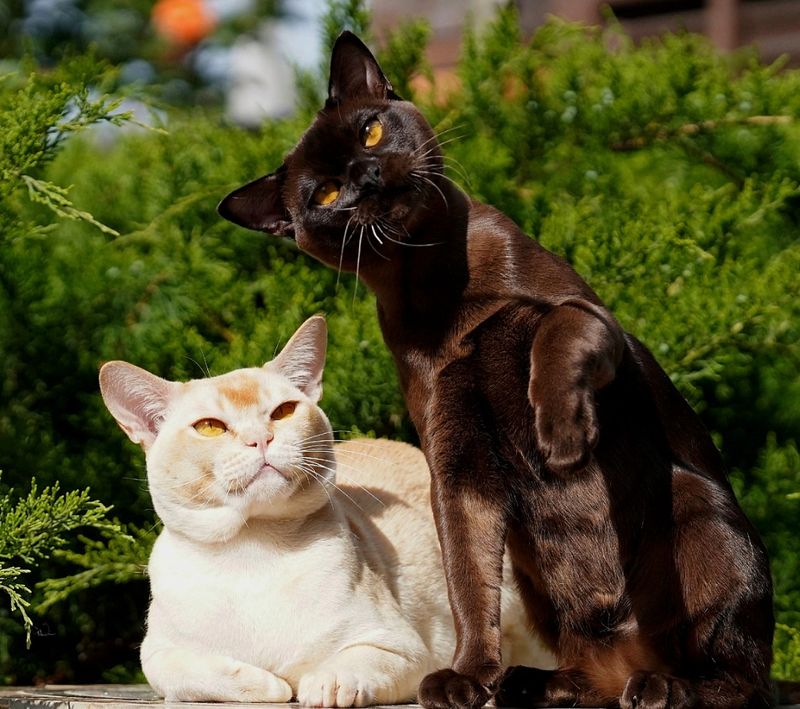📖 Table of Content:
Ever catch your cat gazing longingly out the window like they’re plotting an escape—or a grand outdoor adventure? Well, you’re not imagining things. More and more cat owners are discovering that their feline friends aren’t just nap-loving loafs—they’re also bold explorers, eager for fresh air, new sights, and a little thrill. From strutting beside you on a leash to trotting off-leash like a loyal shadow, some cats are shockingly into the whole walking thing.
But not all breeds are created equal when it comes to outdoor adventures. Some leap into harness training with wild enthusiasm, while others stick by your side like a fuzzy, four-legged best friend who doesn’t need a leash at all.
So, whether you’re dreaming of hikes with your mini-panther or casual strolls with your fluffy sidekick, here are 12 cat breeds that are surprisingly up for a walk—and might just outshine the neighborhood dogs while doing it.
1. Bengal Cats
Wild at heart, Bengal cats crave stimulation that indoor life alone can’t provide. Their leopard-like spots aren’t just for show – these athletic felines have energy to burn and curiosity that knows no bounds.
Walking a Bengal on a leash satisfies their need for exploration while keeping them safe from traffic and predators. Many Bengals learn to love their harness quickly, seeing it as a ticket to adventure rather than a restriction.
Their intelligence makes training relatively straightforward, though you’ll need patience at first. Start with indoor harness sessions before venturing outside, and soon your mini-leopard will be strutting confidently beside you.
2. Savannah Cats
Half domestic cat, half wild serval – Savannah cats bring their safari heritage right to your doorstep! These tall, spotted beauties possess boundless energy that practically begs for outdoor excursions.
Their dog-like personality makes them surprisingly good leash candidates. They’ll prance alongside you with their characteristic bounce-walk, turning heads wherever they go.
Training should start young, as their strong will can make adult Savannahs more resistant to new experiences. Use positive reinforcement and their natural curiosity will soon have them looking forward to harness time.
3. Maine Coon
Despite their massive size, Maine Coons possess the sweetest temperaments in the cat world. These fluffy giants typically adapt well to leash training thanks to their easygoing nature and people-pleasing personalities.
Their natural curiosity makes outdoor exploration appealing, while their intelligence helps them understand the leash concept quickly. Maine Coons aren’t known for being skittish, which prevents the fearful reactions some cats have to outdoor stimuli.
4. Abyssinian Cats
Vibrant and always in motion, Abyssinians hate being cooped up indoors. These ticked-coat beauties have energy reserves that seem endless, making leash walks a perfect outlet for their natural athleticism.
Abys learn quickly and respond well to positive reinforcement, making harness training relatively straightforward. Their natural curiosity drives them to explore new environments, and they often show little fear of the great outdoors.
The Abyssinian’s slender but muscular build makes them perfect walking partners – they can keep pace for surprising distances without tiring. Their alert posture and twitching tail show their excitement as they absorb every sight, sound, and smell during their outdoor adventures.
5. Ragdoll Cats
Don’t let their floppy, relaxed demeanor fool you – Ragdolls often take to leash walking with unexpected enthusiasm! These blue-eyed beauties are known for their adaptable nature and desire to be wherever their humans are.
Their calm temperament makes them less likely to panic when encountering new situations outdoors. Ragdolls typically don’t bolt or struggle against the leash, preferring to stay close to their trusted human companions.
Start with a properly fitted harness (never a collar) and short, positive training sessions. Many Ragdoll owners report their cats actually running to the door when the harness appears – a sure sign these gentle giants enjoy their outdoor adventures almost as much as their cuddle time!
6. Siamese Cats
Talkative and opinionated, Siamese cats make their feelings about everything known – including walks! These sleek, color-pointed felines form incredibly strong bonds with their humans and often enjoy shared activities.
Their intelligence makes training relatively straightforward, though they may voice complaints about the harness at first. Siamese cats are naturally athletic and curious, qualities that make outdoor exploration appealing to them.
Expect your Siamese to provide running commentary throughout your walks together. They might meow with excitement at new discoveries or chatter at birds and squirrels along your path. Their social nature means they’re usually more interested in the experience than frightened by it.
7. Bombay Cats
Sleek and midnight-black, Bombay cats bring mini-panther vibes to their leash walks. These muscular felines combine the looks of a wildcat with a surprisingly sweet, people-oriented personality that makes them excellent walking companions.
Bombays form strong bonds with their humans and generally enjoy participating in activities together. Their playful nature extends well into adulthood, making outdoor exploration an exciting game rather than a frightening experience.
Their intelligence helps them understand leash training quickly, though their determined personality might lead to occasional stubbornness. Patient training usually overcomes any resistance, revealing a cat who struts confidently beside you, turning heads with their striking appearance.
8. Leash-Free: Turkish Van
Known as the “swimming cat,” Turkish Vans bring their adventurous spirit to land explorations too! These rare white cats with colored head and tail markings possess independent yet loyal personalities that make them natural followers.
Their powerful bodies and natural athleticism allow them to keep pace with humans effortlessly. Turkish Vans develop strong bonds with their chosen people and often prefer to stay nearby rather than wander off.
If you live near water, you might discover your Van’s famous swimming abilities during your walks! These cats have water-resistant coats and genuinely enjoy swimming, unlike most felines. Their confident nature means they’re rarely spooked by new environments, making them perfect off-leash companions.
9. Leash-Free: Japanese Bobtail
Recognizable by their rabbit-like bobbed tails, Japanese Bobtails have been following their humans for centuries in their native Japan. These cats feature prominently in Japanese folklore and art, often depicted walking alongside their owners.
Highly intelligent and people-oriented, Bobtails form deep bonds with their families. They possess an uncanny sense of direction and spatial awareness that helps them navigate confidently without getting lost.
Their playful, kitten-like demeanor persists throughout their lives, making outdoor adventures a joy rather than a chore. Japanese Bobtails are natural conversationalists too, often chirping or trilling to communicate with their humans during walks.
10. Leash-Free: Norwegian Forest Cats
Hailing from the forests of Norway, these semi-longhaired giants were born to roam. Norwegian Forest Cats possess natural survival skills and incredible climbing abilities that served their ancestors well in the Scandinavian wilderness.
Despite their independent nature, “Wegies” form strong bonds with their families. They often choose to follow their humans outdoors, keeping a watchful eye from a comfortable distance.
These cats have excellent memories for routes and territories, reducing the risk of them becoming lost. Norwegian Forest Cats typically maintain a dignified presence, neither clingy nor aloof, making them perfect companions for gardening or country walks.
11. Leash-Free: European Burmese
Graceful and golden-eyed, European Burmese cats are renowned for their dog-like devotion to their humans. These medium-sized cats with silky coats form extraordinarily strong bonds with their families, often preferring human company to that of other cats.
Their intelligence and social nature make them natural candidates for off-leash following. European Burmese typically stay close to their trusted humans, checking in frequently with gentle head-butts or conversational chirps.
Unlike some independent breeds, these cats genuinely miss their people when separated. This attachment translates to a cat who’s more interested in staying with you than exploring far afield. Many European Burmese owners report their cats naturally following them from room to room indoors before graduating to outdoor companionship.
12. Leash-Free: Siberian Cats
Hailing from the frigid forests of Russia, Siberian cats bring centuries of outdoor survival skills to their relationship with humans. These sturdy, triple-coated felines were bred to be independent yet cooperative, making them natural followers without neediness.
Their remarkable intelligence helps them understand boundaries and territories intuitively. Siberians typically maintain a comfortable following distance – close enough to stay connected but far enough to explore interesting scents or sounds.
Despite their wild heritage, these cats form deep bonds with their families. Many Siberian owners report their cats naturally accompanying them on outdoor chores or walks without training.
